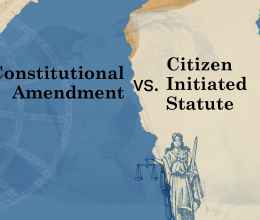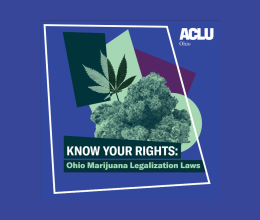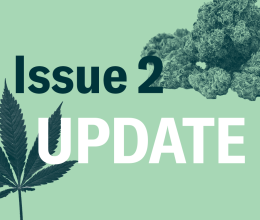To Chairman Thomas, Vice Chair Mathews, Ranking Member Isaacsohn, and members of the House Judiciary Committee, thank you for this opportunity to provide opponent testimony on House Bill 160.
As this committee knows, Ohio voters across the state overwhelmingly passed Issue 2 in November 2023 by a 57-43% margin. On the evening Issue 2 passed, and continuing until at least today, opponents have theorized, speculated, and created out of thin air reasons why Ohioans so thoroughly approved of this change to Ohio law.
Even though Issue 2 proceeded as an initiated statute, subject to changes by the General Assembly, and not a constitutional amendment, those same voters can be forgiven if they assumed any changes by the legislature would be minimal and complimentary to the overall goals of Issue 2. After all, because the Issue 2 campaign opted for the initiated statute route and process, that means the General Assembly had four entire months to make changes, tweak language, and work with that campaign on these matters before Issue 2 reached the ballot. In fact, as part of that process, legislators and the Issue 2 campaign could have reached agreement on these issues and possibly kept Issue 2 from even reaching the statewide ballot. Obviously, none of that happened. But here we are, nonetheless.
Now, 1.5 years after Issue 2’s passage, HB 160 imposes a litany of negative changes on cannabis users, consumers, growers, and professionals to dismantle key parts of current Ohio law enacted by your constituents. For the sake of brevity, I will focus on two topics in my testimony – changes to criminal laws made by House Bill 160 and the cynical scrapping of the social equity and jobs program.
CRIMINAL LAWS
HB 160 changes and creates various criminal offenses. At worst, these changes can be interpreted as purposeful, designed to kneecap Issue 2. At the least, these changes fundamentally handicap the purchase, use, transportation, and sale of cannabis in the state. Consider the following:
House Bill 160 makes a criminal out of someone who shares a joint with another or gives a small amount of cannabis as a birthday or Christmas gift. Of course, no such restrictions exist for alcohol.
HB 160 outlaws traveling to another state and returning with cannabis bought there. But Ohioans can still return home from their favorite out-of-state microbrewery with a can, six pack, or entire keg of beer.
HB 160 inserts law enforcement into landlord/tenant relationships by criminalizing violations of a lease agreement that prohibit cannabis use in or on rental properties.
Despite Ohio’s bursting and expensive jails, HB 160 imposes a mandatory three-day jail sentence, and a total possible six months in jail, plus a mandatory fine of $375-$1,075, plus a mandatory suspension of a driver’s license for various first time violations involving a motor vehicle. To be clear, this section is so radically broad, it applies even to a passenger, in the back seat, of a non-moving car, on private property. Repeat offenses result in mandatory minimum jail time of anywhere from ten days to five years.
It is also worth mentioning here, HB 160, like current law, relies on an entirely inaccurate and outdated method for testing the impairment of suspected cannabis users. Current law also does not allow defendants to challenge in court their alleged impairment. But HB 160 doubles down on all this just the same.
SOCIAL EQUITY & JOBS PROGRAM
When they overwhelmingly passed Issue 2, Ohioans approved a comprehensive social equity and jobs program modeled on those existing in numerous other states. The general idea is twofold. First, to ensure some most affected by laws enforcing cannabis prohibition receive some preferences and incentives to now benefit from the new legal status for cannabis. Second, to provide an ongoing stream of funding for such things as criminal legal system reform and expanding addiction services.
HB 160 tosses this all overboard in favor of a system quickly devolving to favor those with the most resources and influence. When Issue 2 passed, there was hope among many employment and business opportunities, for those who could benefit the most, were not far behind. Instead, HB 160 appears designed to purposely shut them out. No one should be surprised if this trajectory accelerates in coming years. We ask that these concerns and the people they impact not be so callously tossed aside and to restore the social equity and jobs program, as Ohio voters intended.
Clearly, there are some positive parts of HB 160. But they do not outweigh mandatory jail sentences, criminalizing behavior to make things worse than before Issue 2, gutting reform efforts and funding, and kicking to the curb those most impacted by Ohio’s nonsensical, neverending War on Drugs. For these reasons and more, the ACLU of Ohio urges this committee’s rejection of House Bill 160.








